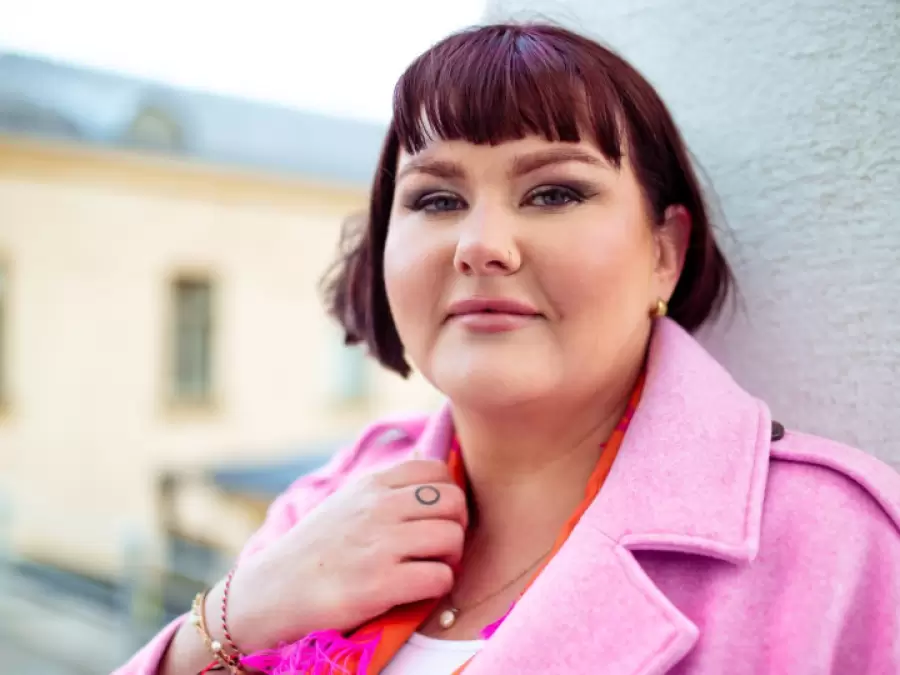You visited us here in Budapest for our Finnovation seminar Becoming visible at work - Finding your professional identity as a woman, where you were the keynote speaker. What was this experience like for you?
It was a great experience, and very empowering for myself as well. It's good to get to speak about these topics, but also to participate and get to know people. I think it’s very important that we are able to interact with each other and talk about these things together, because in those moments we create the room to wonder, to ask questions and to learn.
It was also nice to have the workshop on an individual level of self-awareness. The way I see it, the confidence to talk about the economy and to express your opinions starts from beginning to dismantle the collective trauma we as women on some level share; the notion that finances and economy belong to men, and that it is only men who talk about it. A hundred years ago in Finland, married women weren't even entitled to property, meaning that this is a transgenerational experience of the recent past, and one which we need to process. Getting to do that is always rewarding.
It was a pleasure to get to know the FinnAgora team, but particularly Zsofi Borsi and Dorina Nagy from the Lazy Women -collective. The work they do is quite amazing.
What do you wish for the audience to take home with them from your speech or the workshop you led?
That economics isn't only for men. Our economic system is quite unequal and traditionally built to favor white men, but all genders and demographic groups have the opportunity to take up space in the discussion about it. I hope I was able to help build the confidence to take a stand, to question and to criticize, instead of just taking everything as given.
You say that you are Finland’s first feminist economist. What does feminist economics mean, and how is it different from how we traditionally view economics?
Feminist economics began to develop in the 1980s. New Zealander Marilyn Waring can be considered its principal founder, and in her book If women counted (1988) she commented on how neoclassical economics often ignores women, unpaid care, and other invisible work that often falls on women’s shoulders. Traditionally feminist economics has largely dealt with gender inequality, but over the decades it has expanded to cover environmental issues too.
Especially after the financial crisis in the 2010s, traditional macroeconomics began to receive a lot of criticism. It was said that the models it offers do not adequately respond to the environmental or inequality challenges. Feminist economics is challenging the idea of continuous growth, or the so called trickle down effect which neoclassical economics talks about; that wealth would somehow magically fall to employees as the shareholders accumulate it. We have seen that this has not happened, but instead the rich have gotten even richer and wealth has accumulated to the wealthiest one percent. In addition to this, oppression of the global south is still practiced, and environmental issues often become secondary when talking about economic growth.
Basically, feminist economics is more mindful of gender equality, well-being and environmental issues than the traditional, neoclassical economic thinking.
You are the chief economist at an umbrella organization of Finnish social and health organizations. What do you consider most important for a welfare society?
The basis of a welfare society in the Nordic countries, and in Finland, has been to take care of the weakest among us, and that society is only as strong as its most disadvantaged or vulnerable members. In my work I try to focus on how this could be implemented through economic policy.
In neoliberal economic thinking we are sometimes more concerned about the national debt or possible market reactions than how our society and our citizens are doing - how our social and health services are provided, how mental health services are organized and how we are taking the environment into consideration. My goal is to challenge that kind of thinking, and I try to bring up aforementioned themes in my work.
You’re a very inspiring speaker yourself. Who or what inspires you?
Lately I have been inspired by Sanna Marin. She has managed to create a successful brand of herself, in that she is very professional and forward-thinking, but still has the courage to boldly be herself. She is unapologetic, she dances and she isn’t afraid to take a stand, even if her views might be considered radical. This is something that I’ve rarely seen from female leaders. She is also quite young, and I find her and her actions very inspiring.
Do you have any projects coming up that you would like to say a few words about?
I am currently writing a book. With it I want to explore the topic of male dominance in economics; where it derives from, why we still have so few women in this field, and what could be done about it. The book also deals with how we’ve had a neoliberal or neoclassical economic hegemony in power, and introduces new approaches that challenge it; such as feminist economics or welfare economics. I wish to bring these themes to people’s attention, and to popularize them. I hope that after reading the book, the reader will have gained more self-confidence to participate in economic discussions.
About the interviewee
Anni Marttinen is the chief economist at Finnish Federation for Social Affairs and Health, Soste ry. Before that she has worked for the Ministry of Finance, Bank of Finland and the European Central Bank. She is also known for her entertaining, economics-related content on social media, such as Instagram and TikTok.
Text: Jutta Riepula
Photo: Elisa Salomäki

